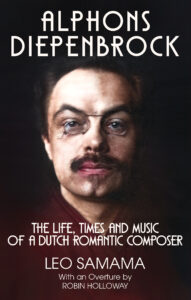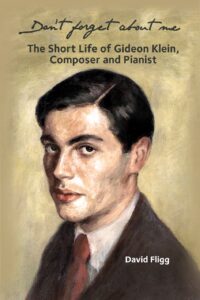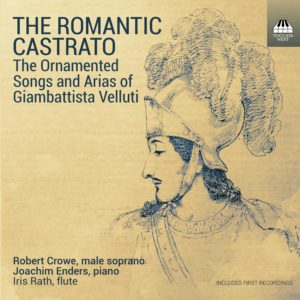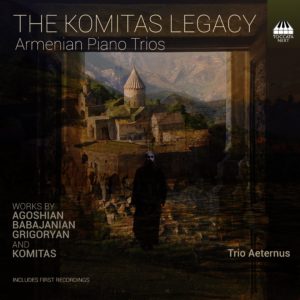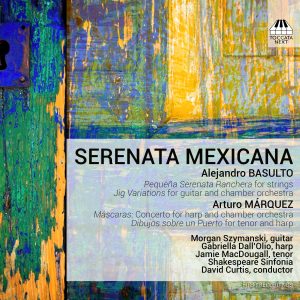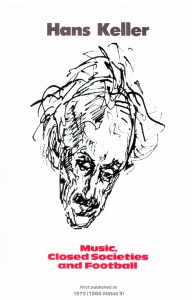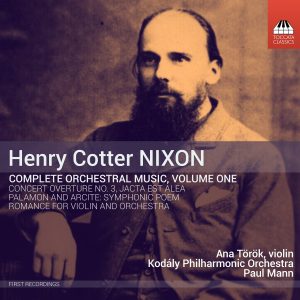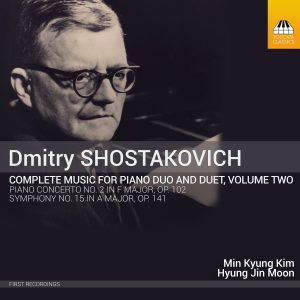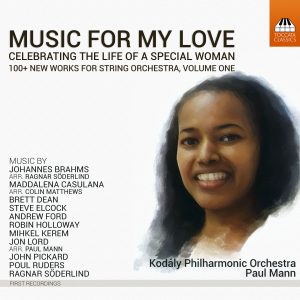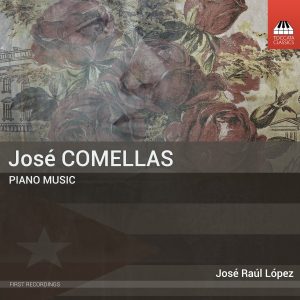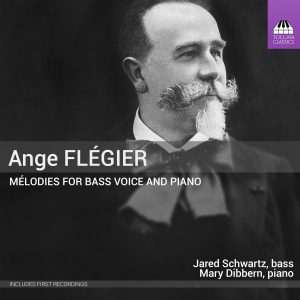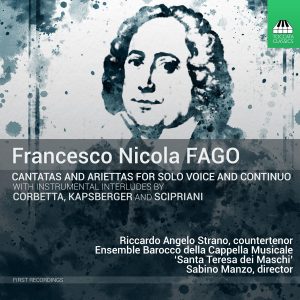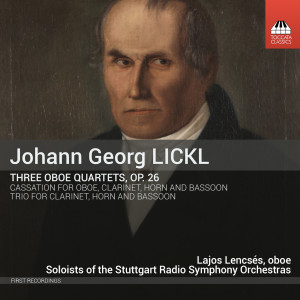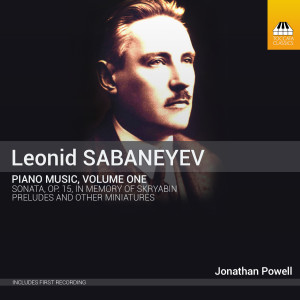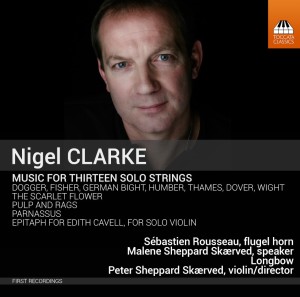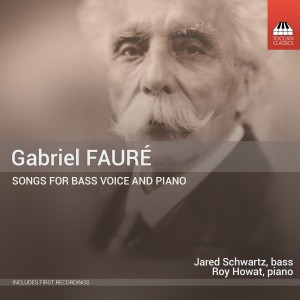Search Results for "Space Wolf: The First Omnibus mp3 torrent" – Page 19
Alphons Diepenbrock: The Life, Times and Music of a Dutch Romantic Composer
by Leo Samama
With an Overture by Robin Holloway
433 Pages
15.6 x 23.4 cm
67 b/w, 35 colour images
Don’t Forget About Me: The Short Life of Gideon Klein, Composer and Pianist
by David Fligg
Royal octavo
322pp
110 illustrations
The Romantic Castrato
Giovanni Battista Velluti (1780–1861) was one of the last of the larger-than-life castrati who had dominated operatic life in the seventeenth and eighteenth centuries. Velluti, though, spent his career almost entirely in the Romantic era, singing the music of his day. His style of ornamentation attracted widespread admiration and set the standard for the prime donne who were emerging as the stars of their age in operas by such composers as Rossini, Bellini and Donizetti. Here the American male soprano Robert Crowe recreates Velluti’s extraordinary sound-world, in a recording that helps explain why such diverse luminaries as Stendhal, Mary Shelley and the Duke of Wellington admired Velluti as one of the most accomplished and inventive singers of his time.
Robert Crowe, male soprano
Iris Rath, flute (Track 21)
Joachim Enders, piano
ALL EXCEPT * FIRST RECORDINGS
The Komitas Legacy: Armenian Piano Trios
Soghomon Soghomonian (1869–1935) took the name Komitas (or Gomidas) when he was ordained a priest in 1894; a year later he became Komitas Vardapet (doctor of theology) – one of the two names by which he is known to history. The other is ‘father of Armenian music’, since he collected thousands of songs from his compatriots, his fieldwork preserving and identifying the accent which makes the works of Armenian composers readily identifiable – as these piano trios prove: one twentieth-century classic and three new works, one of which completes the circle by recasting six of Komitas’ own folksong arrangements.
Trio Aeternus
Alexander Stewart, violin
Varoujan Bartikian, cello
João Paulo Santos, piano
*First recordings
Serenata Mexicana
The Anglo Mexican Foundation celebrates its 75th anniversary with this programme of three of its recent commissions – from Mexican composers Alejandro Basulto and Arturo Márquez – joining the first recording of Márquez’s harp concerto Máscaras, in an album that interleaves nocturnal warmth with an infectious spirit of dancing energy.
Morgan Szymanski, guitar (Tracks 2–13)
Jamie MacDougall, tenor (Tracks 14–18)
Gabriella Dall’Olio, harp (Tracks 14–22)
Shakespeare Sinfonia (Tracks 1–14, 19–22)
David Curtis, conductor (Tracks 1–13, 19–22)
Music, Closed Societies and Football
First published as 1975 (1984 minus 9)
With the ‘Prague Sketchbook’ of Milein Cosman
Extent: 288 pages
Composition: Demy octavo
Henry Cotter Nixon: Complete Orchestral Music, Volume One
The English composer-conductor Henry Cotter Nixon (1842–1907) has entirely disappeared from music history. But this new series – presenting all his surviving orchestral music in its first-ever recordings – reveals Nixon to have been one of the most accomplished English composers of his generation, with a style that takes in elements of Mendelssohn, Schumann, Verdi and Brahms. Nixon labelled his five-movement Palamon and Arcite a symphonic poem (it is one of the first by a British composer), but it has much in common with the programmatic symphonies of contemporary composers such as Goldmark and Raff.
Ana Török, violin (Track 2)
Kodály Philharmonic Orchestra
Paul Mann
Dmitry Shostakovich: Complete Music for Piano Duo and Duet, Volume Two
Much of Shostakovich’s orchestral music was first heard in versions he prepared for piano four hands or two pianos – but most of these transcriptions have languished unheard since those early performances, usually given for friends and colleagues or for Party officials. This series, which uncovers all the transcriptions prepared by Shostakovich himself, continues with the first recordings of his two-piano versions of the Second Piano Concerto and the Fifteenth Symphony.
Pianists Min Kyung Kim and Hyung Jin Moon
Music For My Love, Vol. One
CELEBRATING THE LIFE OF A SPECIAL WOMAN
100+ NEW WORKS FOR STRING ORCHESTRA, VOLUME ONE
When in late 2014 Yodit Tekle was diagnosed with stomach cancer, her partner, Martin Anderson, who runs Toccata Classics, asked a couple of composer friends to write some music to bring her comfort in her illness. As her life slipped away, he had the idea that she could be remembered in music and so he began to commission other pieces for string orchestra in her memory. To his surprise, almost everyone he asked generously accepted, and so the project snowballed: there are now over 100 composers who have written or agreed to write for it – an undertaking unique in the history of music. This first volume presents the first eleven pieces in an initiative which, in effect, transforms love into something you can hear.
Kodály Philharmonic Orchestra
Paul Mann, conductor
José Comellas: Piano Music
Cuba’s heritage of classical music is composed largely of three strands: the inheritance of colonial times and the subsequent influence of African and European musicians. But even after three hundred years of development, most Cuban composers remain unknown to international audiences. This first recording in a series intended to uncover some of those lost voices presents piano pieces by José Comellas (1842–88), of Catalan descent. Most of them are salon works that blend Chopin and Gottschalk, but Comellas’ ambitions also went further, with the first sonata published by any Cuban composer.
José Raúl López, piano
Ange Flégier: Mélodies for Bass Voice and Piano
Although the French composer Ange Flégier (1846–1927) has now been lost from view, he enjoyed considerable fame in his own time thanks to the extraordinary reception of his song Le Cor. Indeed, the mélodie holds a predominant place in his catalogue of more than 350 works. Flégier’s songs, composed for his colleagues at the Opéra de Paris, are large-scale and orchestrally conceived, sitting stylistically close to Duparc in their dignified drama. Many of them receive their first recordings or first modern recordings here.
Jared Schwartz, bass
Mary Dibbern, piano
Thomas Demer, viola (Track 9)
Francesco Nicola Fago: Cantatas and Ariettas for Solo Voice and Continuo
Nicola Fago (1677–1745) was one of the leading practitioners of the chamber cantata, a kind of mini-opera for voice and ensemble perfected by several generations of composers working in the aristocratic courts in Naples. The six examples by Fago recorded here – for the first time – reveal him to have been a master of the genre: they are dramatic, full of rhythmic excitement and stuffed with catchy tunes. Fago’s contemporaries called him ‘Il Tarantino’, since he was born in Taranto, in the area now known as Puglia, in the heel of Italy, and this is the first in a series of Toccata Classics recordings of Puglia composers.
Riccardo Angelo Strano, countertenor (1, 2, 4, 5, 7, 8, 10, 11)
Ensemble Barocco della Cappella Musicale ‘Santa Teresa dei Maschi’
Claudio Mastrangelo, Baroque cello (3)
Giuseppe Petrella, theorbo and Baroque guitar (6, 9)
Davide Milano, violone (3)
Sabino Manzo, harpsichord and director
Johann Georg LICKL: Three Oboe Quartets, Op. 26
Johann Georg Lickl (1769–1843) was born not far from Vienna, where he studied with Haydn and Albrechtsberger. He also spent the first part of his career there, as an organist and composer of music for the theatre and the church. In 1805 he took up the post of regens chori in Fünfkirchen (now Pécs in Hungary) and stayed there for the rest of his life. The Cassation for winds on this recording was once thought to have been written by Mozart, which gives some indication of the quality of Lickl’s work and suggests that further exploration of his large output is overdue. This first recording dedicated to his elegant and spirited music is a step in that direction.
Featuring:
Lajos Lencsés, oboe
Soloists of the Stuttgart Radio Symphony Orchestra
Leonid Sabaneyev: Piano Music
For most of the past century the Russian composer Leonid Sabaneyev (1881–1968) was known principally as a writer, not least for his publications on his close friend Alexander Skryabin (he was also a scientist and mathematician). It is only now that his own music is being rediscovered. This first recording of his monumental Piano Sonata, ‘In Memory of Skryabin’, cast in a single movement half an hour in length, is prefaced by a number of characteristic miniatures.
Jonathan Powell, piano
First recordings
Nigel Clarke: Music for Thirteen Solo Strings
For three decades the English composer Nigel Clarke (b. 1960) has worked in close collaboration with the violinist Peter Sheppard Skærved. Clarke’s engaging and energetic music often takes its cue from a dramatic or poetic impulse, here featuring two tributes to Edith Cavell, the British nurse shot in the First World War, two musical portraits of the town of Dover, and Parnassus, the first piece to result from this collaboration, which initiated a series of pieces for string ensemble, most recently for their virtuoso collective Longbow.
Sébastien Rousseau, flugel horn; Malene Sheppard Skærved, speaker; Longbow; Peter Sheppard Skærved, violin/director;
Gabriel Fauré: Songs for Bass Voice and Piano
This collection of Fauré’s mélodies – the first recording to be conceived for a bass voice – juxtaposes some of the composer’s best-loved songs with some of his lesser-known works. Going beyond the often arbitrary ordering of early editions, this programme draws out connections of poets and poetic themes, some of which restore the composer’s own original groupings. This is the first recording to be based on the new Peters Edition, which eliminates countless errors in older publications.
Jared Schwartz, bass; Roy Howat, piano;
Stay In the Know
JOIN THE TOCCATA NEWSLETTER
"*" indicates required fields
By visiting our site, you agree to our privacy policy regarding cookies, tracking statistics, etc.
